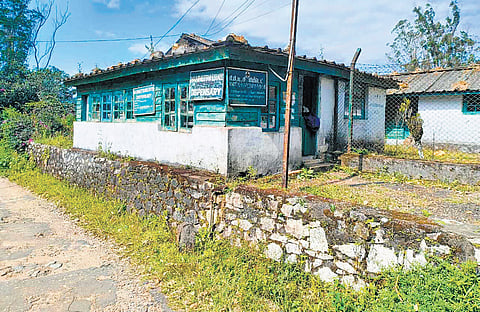

TIRUNELVELI: Grey skies loom over Manjolai’s lush green tea estates, matching the dull atmosphere near the residential units, as former tea estate workers and their families make their way to the plains. Once home to thousands of worker families, the place now wears a deserted look, as only about 100 families now reside in Manjolai Hills.
Most workers have relocated to their native in Tirunelveli, Tenkasi, Thoothukudi and other parts of the state.
In a recent order, the Madras High Court allowed the state government to preserve the rich biodiversity of the forest where the tea estates were established under a 99-year lease and directed it to rehabilitate the workers in the plains.
The court also observed that workers in these plantations cannot claim rights as forest dwellers under the Scheduled Tribes and Other Traditional Forest Dwellers (Recognition of Forest Rights) Act, 2006.
The high court had said, “When it comes to environmental issues, the anthropocentric approach must be replaced because the eco-centric approach would only be in line with the laws of nature.”
When TNIE visited the hills on Wednesday, former workers shared their pain of leaving Manjolai. “My grandparents began working in this estate. My parents and I were born here and we have spent decades here. Shifting us to the plains is like replanting a well-grown banyan tree,” said R Seelan, a former worker of Bombay Burmah Trading Corporation Limited (BBTCL), which wound up its business four years before the lease period ends in 2028.
Vijay Kumar, another former tea estate worker, said, “After signing the BBTCL’s VRS proposal, we were left with no means of livelihood. Many former tea estate workers are working at construction sites and hotels.” The workers also raised concerns about whether they would be allowed to conduct festivals and visit the tombs of their ancestors in the hills.
The state government recently conducted a camp in Manjolai and received applications from the residents to avail benefits of various livelihood development schemes. “We are offering loans to former workers to start business,” said an official.
District Collector Dr K P Karthikeyan said his administration is tracking every worker who has been given patta land to ensure they are properly rehabilitated. “If anyone reports the land could not be identified, we will immediately resolve it. Some pattas given years ago fall in the ‘kallanguthu’ lands category, unfit for construction. In such cases, we have given fresh pattas. We are also giving the workers houses in Reddiarpatti or Manimuthar apartments,” he added.
'Eco-centric approach over anthropocentric approach'
The Madras High Court had said, "Workers, who have been living on the estates for generations and raising their children, would find it difficult to leave. The workers and their families will surely have sentimental ties, so it would surely be quite upsetting for them. When it comes to environmental issues, the anthropocentric approach must be replaced because the eco-centric approach would only be in line with the laws of nature."